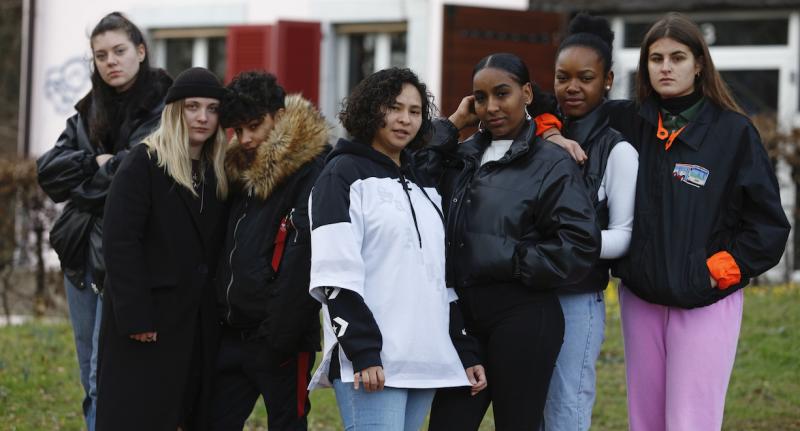La Mif review - Swiss docu-drama focuses on troubled teens | reviews, news & interviews
La Mif review - Swiss docu-drama focuses on troubled teens
La Mif review - Swiss docu-drama focuses on troubled teens
Ambitious but overly didactic portrait of a social work system struggling with emotional conflict

La Mif is French slang for family - it’s the cool kids practice of reversing key words known as ‘verlan’ (itself l’envers backwards) to create their own language.
While Bailif is keen to stress that the young women’s stories of abuse, neglect and abandonment and the staff’s arguments over how much sexual behaviour to allow between the kids are fictional, the fact that the director worked in such settings as a social worker for many years gives authenticity to his narrative. Divided into seven chapters focusing on individual characters, La Mif begins when the residential home is occupied by a mixture of teenage boys and girls. 17-year-old Audrey has sex with underage Charles and the fallout leads to the facility becoming girls-only. Lora (Claudia Grob), the veteran director of the home returns from bereavement leave, her role to try and calm the local authorities’ anxieties and negotiate not only with the fiery girls but also with the conflicted staff.
Predominantly filmed with hand-held cameras, the movie relies on close ups and confrontations for its drama. I longed for an occasional wide shot and locating sequence just to give an impression of the setting and to break up the relentless intimacy. While the cast of teenagers are uniformly impressive in their energy and individuality (particularly Amelie Tonsi as Alison, below) and the adult non-actors are wholly credible in their roles, there’s something overly contrived in Bailif's editing. Scenes are returned to from one chapter to the next, with additional footage edited in to alter the recalled story from the perspective of a different character.  It’s all just a tad didactic; if you didn’t know that Switzerland has a problem with immigration, that well-meaning adults have their own psychodramas and that even rich families can have their daughters taken into care after a terrible incident, you will by the end of La Mif. The artfulness of this drama-documentary hybrid is particularly noticeable (and grating) in Bailif’s use of music – Bach piano and Mozart choral excerpts are used as ironic juxtapositions to the on-screen turmoil.
It’s all just a tad didactic; if you didn’t know that Switzerland has a problem with immigration, that well-meaning adults have their own psychodramas and that even rich families can have their daughters taken into care after a terrible incident, you will by the end of La Mif. The artfulness of this drama-documentary hybrid is particularly noticeable (and grating) in Bailif’s use of music – Bach piano and Mozart choral excerpts are used as ironic juxtapositions to the on-screen turmoil.
La Mif is being compared with last year’s British drama, Rocks (now available on Netflix). Both films share a cast of non-professional teenage girls and were similarly developed from improvisation and workshops with the amateur performers drawing on their own life experiences. But playwright Theresa Ikoko and director Sarah Gavron turned Rocks into something far more ingenious in its camerawork and editing. Rocks has a real sense of place, and characters and narrative develop in an organic way. La Mif by comparison tends towards the sententious, hectoring and claustrophobic. There's also something a little queasy about a male director including so many shots of the girls in their underwear in changing rooms and swimming pool scenes.
rating
Explore topics
Share this article
The future of Arts Journalism
You can stop theartsdesk.com closing!
We urgently need financing to survive. Our fundraising drive has thus far raised £49,000 but we need to reach £100,000 or we will be forced to close. Please contribute here: https://gofund.me/c3f6033d
And if you can forward this information to anyone who might assist, we’d be grateful.

Subscribe to theartsdesk.com
Thank you for continuing to read our work on theartsdesk.com. For unlimited access to every article in its entirety, including our archive of more than 15,000 pieces, we're asking for £5 per month or £40 per year. We feel it's a very good deal, and hope you do too.
To take a subscription now simply click here.
And if you're looking for that extra gift for a friend or family member, why not treat them to a theartsdesk.com gift subscription?

Add comment